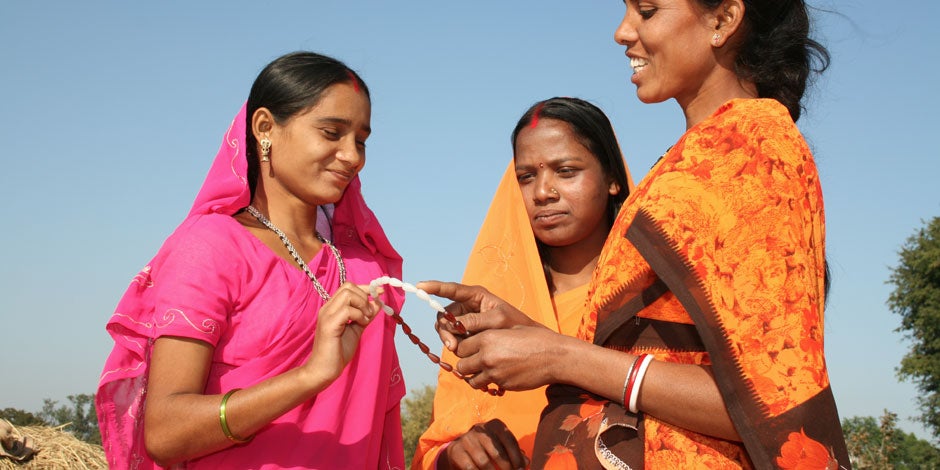FAM: Scale-up

Under the FAM Project, IRH and partners have studied the process and effects of large-scale integration of fertility awareness methods (FAM) into family planning and reproductive health systems in selected countries. The goal of the scale-up effort was to increase access to and use of FAM in five countries: Democratic Republic of Congo, Guatemala, India, Mali, and Rwanda. Scale-up research was central to the design of the project in order to document and understand how a family planning innovation – specifically the Standard Days Method® (SDM) – could be incorporated into mainstream family planning programs and achieve sustainability.
Research under the FAM Project intended to describe the process and outcomes of SDM scale-up using the ExpandNet/WHO framework. Using a multiple case design, the study compared the five “cases” of SDM scale-up using quantitative and qualitative data collected by the project, such as household surveys, stakeholder interviews, and facility assessments. The study tested the hypothesis that applying a systems approach to scale-up would lead to wide-spread availability of quality SDM services sustained over time.
Results showed that a systems approach was essential for planning, monitoring, guiding, and evaluating scale up. Application of a systems framework, such as the ExpandNet model, helped to balance efforts to achieve both geographic expansion and institutionalization, keeping in mind the goal of sustainability. The systems approach also helped focus staff attention on their most important outputs, integration of SDM into systems and policies, transferring capacity, and monitoring and evaluation.
Monitoring Processes & Evaluating Outcomes
Monitoring Processes & Evaluating Outcomes of Scale-up
The research-to-practice continuum can be conceptualized in three phases: pilot, scaling up, and large scale implementation. Program developers and those involved with piloting a health innovation must “begin with the end in mind” and, thus, consider indicators which will measure success at each point along the research-to-practice continuum. Efforts under the FAM Project have yielded a set of evidence-informed practices, methods and tools to support M&E during scale-up. These practices and tools have facilitated IRH’s efforts to bridge the ‘science’ to ‘service’ gap in scale-up.
IRH found that the M&E process, as well as the information it generates, supports scale-up by helping stakeholders clearly define the innovation, maintain fidelity as the reach of the program expands, identify the need for adaptations, and ensure that the adapted innovation continues to produce the desired effect. A collaborative process of benchmarking, process documentation, and continuous feedback engages stakeholders and involves new partners as services expand. M&E data can verify that the evolving innovation maintains its effectiveness and provide opportunities to advocate for investment and partnerships, while fostering discussions which reinforce the core values of the innovation.
 Where We Work
Where We Work  Press Room
Press Room  FACT Project
FACT Project  Passages Project
Passages Project  Learning Collaborative
Learning Collaborative  Search All Resources
Search All Resources  Social Norms
Social Norms  Fertility Awareness Methods
Fertility Awareness Methods